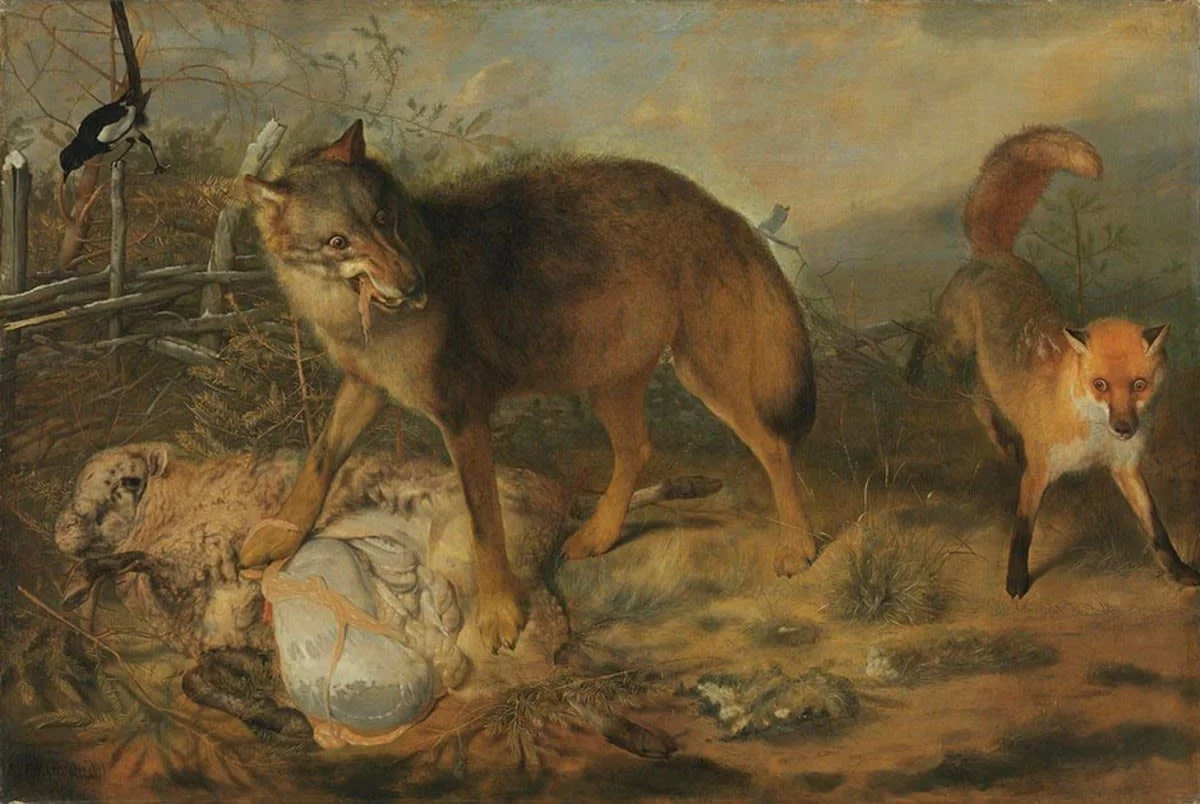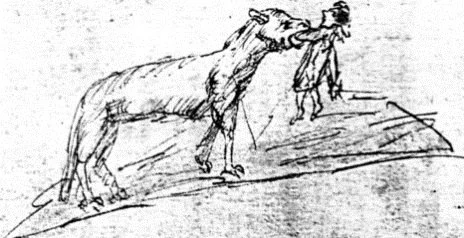Should We Get Rid of Cats and Dogs?
Dogs and cats are capable of viciousness we prefer to ignore. Years ago I saw a German Shepherd kill a terrier in a park while on a walk. First there was barking, then shrieking, then a distraught chorus repeating “Oh my god” until there was silence, and a dying dog. The violence erupted like an unholy revelation, proclaiming ‘this is nature’. When food comes in bags and cans, we often forget what sort of animals our dogs and cats are: predators.
Most species that have ever existed are now extinct, around 99%. Living things perish for many reasons: catastrophes, competition, predation. To survive, animals adapt and evolve. Our dogs and cats did. They evolved to be predators, though they’re sometimes prey too. In other words, they evolved to eat other animals. Their lives require others’ deaths.
Wouldn’t it be Nice to not have Predators?
It might be nice to imagine a world where our cute cats and fluffy dogs ate only vegetables. Unfortunately, that’s not our world. But what if it could be? The Prophet Isaiah of the Bible described a world where “the wolf also shall dwell with the lamb.” It’s a charming vision, where predators no longer need to hunt and lions can instead “eat straw like the ox.”
Imagine such a world were possible. Would you prefer it? Is predation, the act of some animals hunting, killing, and eating others to survive, something you’d prefer didn’t exist? The debate as to whether predation is an ethical problem has been discussed for centuries. An obvious and now classic objection is that without predators, other species would overpopulate and cause environmental problems. No wolves can mean too many deer, and too many deer can mean too little grass or too few trees.
Practically speaking, predation needs to stay. Often, predators are needed for balanced ecosystems.
How about on Mars?
But what if we could set aside the practical considerations? Let’s do a sci-fi thought experiment. Imagine the year is 2421 C.E. and you work at the U.N. Space Agency. Your job is to terraform Mars. The goal is to make the red planet a place where people, plants, and animals may live. You have the wealth of nations to spend, the best scientists in history, and supercomputers the size of small nations to make sure everything will work.
One day, the team’s zoologist brings you two proposals, you must approve one. Proposal One, the zoologist explains, is to send animals of all kinds to Mars: sheep, ducks, goats, wolves, lions, etc. Proposal Two, is an “Herbivore Only” list. Your team’s supercomputer, which is the size of Denmark, assures you that the ecosystems of Mars will be balanced, sustainable, and bio-diverse. Most of all, there will be no predation. No rabbits will die in the jaws of wolves. No parasites will hollow out the eyeballs of lambs. There’ll just be herbivores chewing leaves and grass. Which proposal do you choose?
If Predation is a Problem, What Then?
If you favor Proposal Two, then you may be in league with those philosophers who believe that predation is a problem. For these thinkers, the suffering of animals in nature is tragic and we should do something about it. If you have ever prevented your cat or dog from killing a squirrel in a park, then you may have felt the pull of their argument. Maybe, you even agree that predation is a problem.
If predation is a problem, what is to be done?
In the immediate future, we can’t do much. In the thought experiment about Mars, we imagine a scenario where one could simply choose not to introduce predators to new ecosystems. Though we can go further.
Power up your imagination again. The year is 2421 C.E. and you’re the chief scientist at the United Nations of Earth. A frizzy haired pharmacist approaches you and says they have an antidote to carnivorousness. If you wanted, the pharmacist says, animals around the world could be turned into herbivores. Prophet Isaiah’s dream would come true, and lions would eat straw. You get to transform nature, not just control it. By the way, the scientist says, a supercomputer the size of Jutland assures us that these measures won’t cause the collapse of our ecosystems. What would you say?
How Far Would You Go?
Let’s try a darker version of the scenario. Say the pharmacist approaches you to say that trials of an antidote to carnivorousness have failed. However, they’ve been able to create a virus. “It’ll spread to all the carnivores” they say, “but not to humans of course!” Assured that the carnivore disease is quick and painless, the now slightly more sinister scientist says that in just a week, all the predators could be gone, and the herbivores spared. The supercomputer the size of a Scandinavian peninsula double checked and says the ecosystems of the world can be maintained. Would you kill the predators to save the prey?
These questions are a means to approach deeper questions about our relation to animals, nature, and suffering.
When we ask about sending dogs and cats to Mars, turning wolves into vegetarians, or eradicating predators as a whole, we are really asking other questions. Should the suffering of other species matter to us? If so, we need to ask what means are acceptable to alleviate that suffering. When imagining Mars, we are considering whether constructing an engineered environment which excludes some species is justifiable. When considering the antidote for carnivores, we are weighing the value of preserving species as they are against the suffering their nature causes. Lastly, the option of mass extinction requires us to sacrifice the existence of some species to preserve the welfare of others. In the process of asking and answering these questions, our own values (should) come into view.
A Postscript
Maybe however, you have protested from the start. Maybe you would take cats and dogs to Mars. You’d refuse to give predators an antidote to carnivorousness. You balk at the idea of exterminating other species.
Imagine one last scenario. The year is 2439 C.E. Years ago, the pharmacist, whose offer of a virus you rejected, went mad and created an elixir which transformed carnivores. Dogs and cats are now gigantic, bulletproof, and hungry. Humans live in constant fear of being eaten by pets the size of ice-cream trucks. You’ve lost loved ones to ravenous packs of corgis and tabby cats. One day, you’re foraging for food in the ruins of a Twinkie factory and you hear a hungry terrier is stalking you. You’re cornered.
Then, miraculously, a UFO the size of Iceland appears in the sky! A hyper-intelligent species has found earth, and they see humans and other species living in fear of these canine and feline predators. You know those aliens are watching. You suspect they have some great scientists, a supercomputer the size of the Nordic Council’s southernmost member, and maybe, some sympathy for your situation. What would you want them to do?





